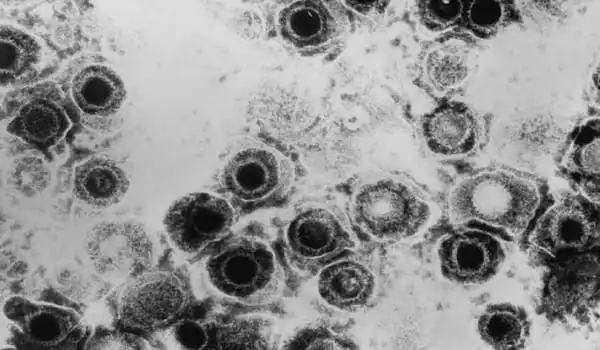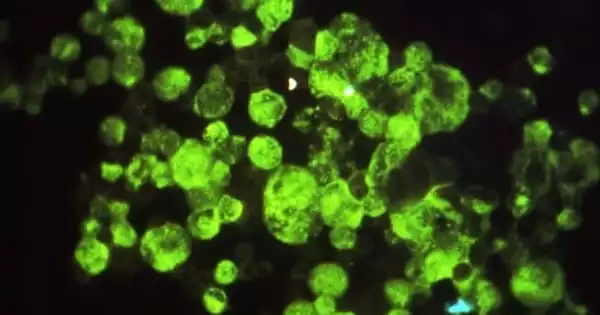A new method for treating human herpes viruses has been discovered by researchers. Rather than viral proteins, which were previously targeted, the new broad-spectrum method targets physical properties in the virus’s genome.
A new method for treating human herpes viruses has been discovered by researchers at Lund University in Sweden. The treatment is made up of new molecules that penetrate the virus’s protein shell and prevent genes from leaving the virus to infect the cell. It does not cause resistance and acts independently of virus genome mutations. The findings have been published in the journal PLOS Pathogens.
Herpes virus infections last a lifetime, with long periods of inactivity between reactivations, making treatment difficult. The major challenge is that all existing antiviral drugs for treating herpes viruses cause rapid resistance development in patients with compromised immune systems, who have the greatest need for herpes treatment (e.g. newborn children, patients with HIV, cancer or who have undergone organ transplantation). A virus’s molecular and physical properties both influence the course of infection. According to researcher Alex Evilevitch, the physical properties have received little attention thus far.
We have developed a novel and distinct method for studying viruses based on their specific physical properties. Our discovery is significant in the development of antiviral drugs because it does not target specific viral proteins that can rapidly mutate, resulting in drug resistance – a problem that current antiviral drugs against herpes and other viruses have yet to resolve.
Alex Evilevitch
Valacyclovir, like other herpes medications, is extremely effective. According to studies, it reduces the amount of time needed for healing during a herpes outbreak, as well as your risk of transmitting the herpes virus to others. Valacyclovir begins to work almost immediately after you begin taking it.
“We have developed a novel and distinct method for studying viruses based on their specific physical properties. Our discovery is significant in the development of antiviral drugs because it does not target specific viral proteins that can rapidly mutate, resulting in drug resistance – a problem that current antiviral drugs against herpes and other viruses have yet to resolve. We hope that our research will help in the fight against previously incurable viral infections” According to Alex Evilevitch, Associate Professor and Senior Lecturer at Lund University, who published the new findings with his research team, Virus Biophysics.

The virus is made up of a thin protein shell called a capsid, and inside it is the virus’s genome or genes. Alex Evilevitch previously discovered that the herpes virus has high internal pressure due to the virus’s dense packing of genetic material.
“The pressure is 20 atmospheres, which is four times higher than the pressure in a champagne bottle, and this allows herpes viruses to infect a cell by rapidly ejecting their genes into the cell nucleus after the virus has entered the cell. The cell is then tricked into becoming a small virus factory, producing new viruses capable of infecting and killing other cells in the tissue, resulting in various disease states” Alex Evilevitch explains.
He identified small molecules that can penetrate the virus and “turn off” the pressure in the virus’s genome without harming the cell using preclinical studies at the National Institutes of Health in the United States. These molecules demonstrated a strong antiviral effect that was several times stronger than the standard treatment with the drug Aciclovir against certain herpes types, as well as against resistant herpesvirus strains where Aciclovir does not work. The method avoided viral infection. Because all herpes viruses have a similar structure and physical properties, this antiviral treatment is effective against all herpes viruses.
“Today’s drugs for combating viral infections are highly specialized against viral proteins, and if the virus mutates, which happens frequently, the drug becomes ineffective.” However, if you are successful in developing a treatment that attacks the physical properties of a virus, such as lowering the pressure inside the herpes virus shell, you should be able to use the same drug to treat many different types of viral infections within the same virus family. Furthermore, it would work even if the virus mutated because mutations have no effect on the herpes virus’s internal pressure.
“The current study’s findings are a first step toward the goal of developing a drug, and we already have positive preliminary data demonstrating that a herpes infection can be stopped for all types of herpes virus, including resistant strains.”





